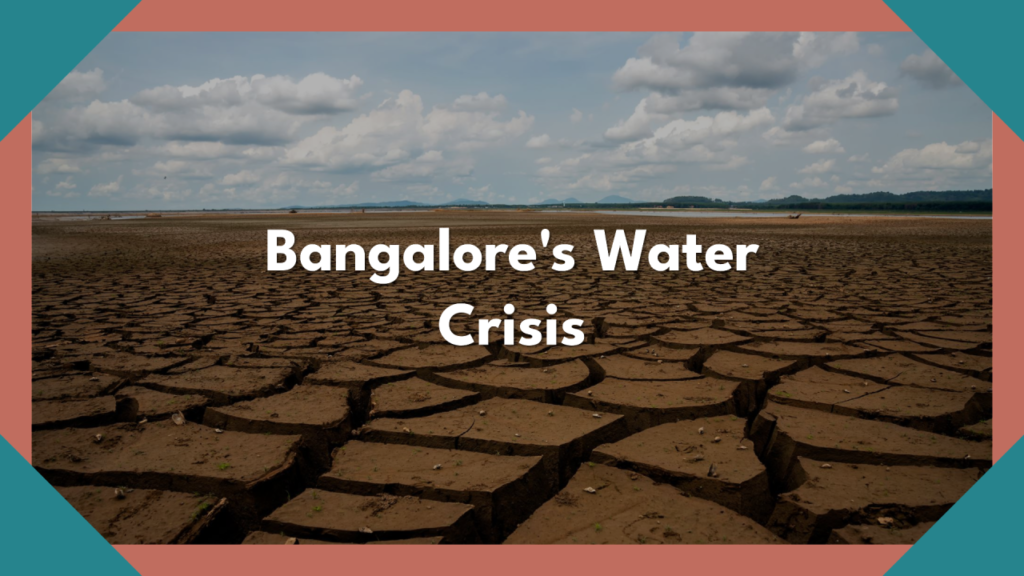Return home, Amid the water crisis in Bengaluru, residents face dire circumstances with just five showers a month, opting for takeout over cooking, and utilizing treated water for non-drinking needs.
As they grapple for each precious drop, individuals are embracing recycling techniques to cope with the scarcity. NDTV explored arid regions, conversing with locals to shed light on the profound impact on their daily lives.
Residents of suburban Babusapalya are dependent on water tankers for their daily supply, and that has taken a severe hit over the past couple of months.
“We need four tankers daily. We are getting only one or two. We are facing huge problems over the past two-three months,” one resident said.

When questioned about the city administration’s directive to regulate tanker water rates, a resident noted, “While the rates have steadied, the underlying issue persists. Timely tanker delivery is still a challenge due to the overwhelming demand.”
A female resident of the apartment complex in the vicinity was preparing to leave for work. When questioned by NDTV about the severe water scarcity, she expressed, “Having a baby makes it incredibly challenging. The tankers are irregular. Although the government has lowered prices, the deliveries remain inconsistent. And even when they do arrive, the water supply is insufficient. The uncertainty of this situation and when we can return to normalcy is distressing.”.”
When asked about their hopes for better times with the upcoming monsoon, a resident highlighted issues with how past governments executed development projects. “They focused on constructing apartments and roads, neglecting the people’s well-being and disregarding the groundwater levels. In my 15 years here, such critical measures were never taken by any government,” he expressed. He also mentioned the concerning sight of people waiting in kilometer-long lines just to access drinking water.
One resident said he took a bath 5 times over the past one month.

Bengaluru heavily depends on two water sources – the Cauvery river and groundwater. Recycled water from sewage treatment plants is used for non-drinking purposes. These main sources are strained due to prolonged drought conditions. The city requires 2,600-2,800 million liters of water daily, but the current supply only meets half of this demand. Consequently, residents of Bengaluru struggle daily to secure sufficient water supply.
The water crisis has hit hospitals too. Brookfield Hospital near Whitefield, one of the parched areas in the city right now, depends on water tankers and needs 24,000 litres in three days. That’s not all, 5,000 litres are needed daily just for the dialysis unit.
Dr Pradeep Kumar, medical officer of Brookfield Hospital, said, “We are recycling water and using it along with regular water for washing and cleaning.”
Bengaluru is home to a significant number of migrant tech professionals drawn to the city’s abundant opportunities in the IT sector. Currently, they are exploring work-from-home arrangements to reduce water consumption.
Shruthi, an engineer said, “Work-from-home will be a viable option, but only if people actually went home so that the population is reduced and water consumption drops.”
Bengaluru might be facing drought conditions, but the political climate is heating up. The Opposition BJP has raised concerns about potential protests, as Bengaluru South MP Tejasvi Surya criticizes the Congress government for its inaction. “Due to the government’s failure to implement preventive measures, the citizens of Bengaluru are grappling with this severe water crisis,” he remarked.
Deputy Chief Minister DK Shivakumar dismissed the allegations, asserting that the BJP should focus their protests in Delhi on projects like Mahadayi. He emphasized that figures such as (former Chief Minister) Jagadish Shettar and (Union Minister) Prahlad Joshi stand to gain from the provision of drinking water. The Mahadayi project aims to redirect river water to arid regions of Karnataka.








![Newzvilla Maruti eVX Electric SUV to Feature Dual Screens and Rotary Dial [Video].](https://newzvilla.co.in/wp-content/uploads/2024/04/Screenshot-2024-04-04-212840-551x431.png)




Leave feedback about this